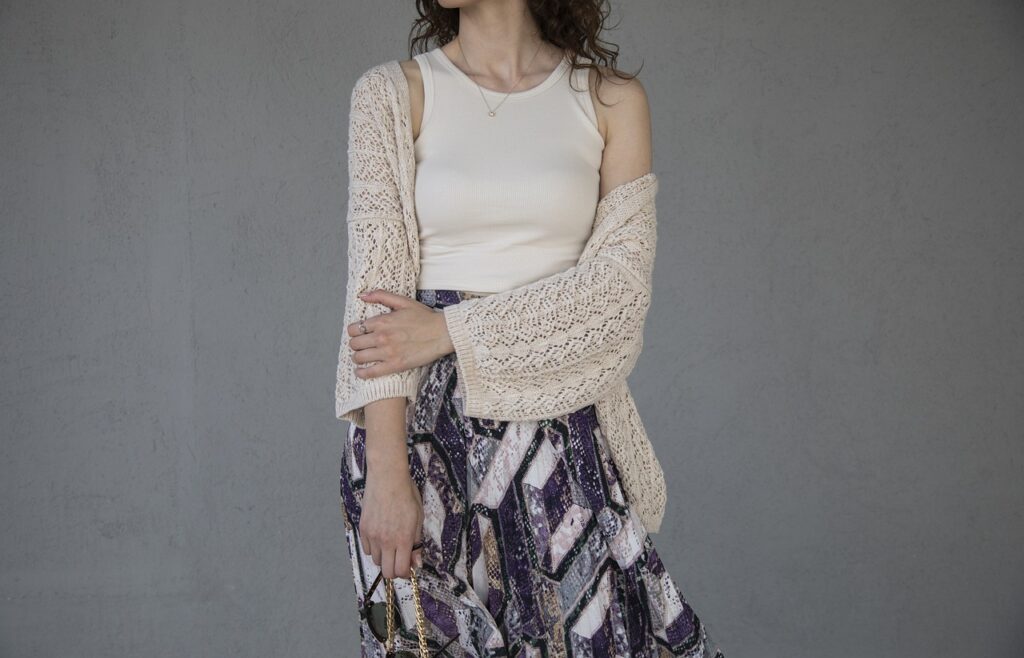
Oprah Winfrey, a name synonymous with unparalleled influence, wisdom, and an almost mythical ability to connect with the human spirit, has carved an extraordinary path through the annals of media and culture. For decades, she has invited millions into conversations about life’s deepest truths, from triumph and joy to the profound complexities of pain and healing. Yet, behind the public persona and the empire she built, lies a woman who, like all of us, navigates her own intricate emotional terrain, particularly when it comes to the formidable challenge of forgiveness.
Her journey, often shared with remarkable candor, offers a unique lens through which to explore what it truly means to release the hold of past hurts. This isn’t merely about abstract philosophical concepts; it’s about the very real, visceral struggle to let go of anger, resentment, and betrayal, emotions that can otherwise cast long, suffocating shadows over a life. It’s a testament to her enduring humanity that even a figure of her stature actively grapples with these universal dilemmas, providing a beacon for those seeking their own path to peace.
In this comprehensive exploration, we delve into the multifaceted world of Oprah Winfrey and her intimate dance with forgiveness. From the deeply personal wounds that shaped her early life to the transformative spiritual principles she has embraced, we uncover the wisdom and resilience required to journey from anger to acceptance. It’s a profound testament to the power of the human spirit to heal, even when the scars run deep.

1. **The Weight of Abandonment: Oprah’s Mother and Early Scars**Oprah Winfrey’s reflections on her complicated relationship with her mother provide a poignant illustration of the profound struggle to forgive those who have caused deep pain. She openly acknowledges experiencing feelings of abandonment and hurt during her formative years, emotional scars that could have easily festered into a pervasive sense of bitterness, coloring her entire perception of the world and her place within it. These early experiences, often unspoken in their full depth, laid a complex foundation for her adult life and her ongoing quest for emotional wholeness.
Such foundational hurts, particularly within the sanctity of family, can leave indelible marks, shaping an individual’s sense of security, self-worth, and capacity for trust. The act of reconciling with a parent who caused such pain is not merely an intellectual exercise; it is an emotional and spiritual odyssey that demands immense courage and vulnerability. Oprah’s willingness to speak to this struggle underscores the universality of grappling with difficult family histories, making her journey relatable even amidst her extraordinary life.
Crucially, despite the profound pain and the potential for deep-seated resentment, Oprah recognized the paramount importance of love and forgiveness in her personal journey towards healing. This acknowledgment was not an overnight epiphany but a gradual, deliberate realization that holding onto bitterness served only to chain her to the past. It was this understanding that propelled her to seek pathways to release, setting a powerful precedent for the philosophical and spiritual principles that would later define her public message.

2. **Forgiveness as Personal Liberation: Reclaiming Inner Peace**For Oprah, prayer emerges as an indispensable and deeply personal spiritual practice, offering a profound avenue to navigate the tumultuous landscape of human emotion. When confronted with individuals who have inflicted pain, she advocates for prayer as a powerful tool to “release our negative emotions and move toward healing,” transforming what might otherwise be a debilitating experience into an opportunity for growth. It is a conscious, active choice to engage with one’s inner world, seeking solace and guidance beyond the immediate sting of betrayal.
This deliberate act of praying for someone who has caused harm is not, as Oprah clarifies, about condoning their actions or absolving them of responsibility. Rather, it is a deeply personal and strategic decision to “release the hold that anger has on us.” It is a profound act of self-preservation, a recognition that harboring resentment ultimately harms the one who holds it, trapping them in a cycle of negativity that drains vitality and stifles joy. The focus shifts from the perpetrator’s actions to the victim’s own emotional liberation.
Understood in this light, prayer transcends its conventional definition, serving as a powerful “catalyst for healing.” By consciously choosing to extend goodwill, even in the face of egregious hurt, an individual begins the arduous but ultimately rewarding process of letting go. This deliberate release allows one to shed “the toxicity that can consume us,” paving the way for a renewed sense of peace and a reclaiming of one’s inner power. It is a testament to the transformative potential of spiritual practice in overcoming life’s most challenging emotional landscapes.

3. **The Jampolsky Revelation: Accepting the Past’s Unchangeable Truth**Among the many profound insights that have shaped Oprah’s philosophy on forgiveness, Dr. Gerald Jampolsky’s timeless declaration stands out as a “big old aha moment” that she has since embraced as a “spiritual law”: “Forgiveness is giving up the hope that the past could have been any different.” This simple yet revolutionary statement cuts through the often-complex emotions surrounding past hurts, offering a direct pathway to liberation that resonated deeply with her personal experiences and struggles.
The genius of Jampolsky’s wisdom lies in its recognition that much of our suffering stems not from the event itself, but from our relentless replaying of “what if” scenarios – the endless yearning for a different outcome that was never to be. By surrendering the hope that “what would have, could have, should have happened, in fact…it did not happen,” one begins the arduous but necessary process of accepting the immutable reality of what transpired. This acceptance is not passive resignation, but an active choice to face truth.
For Oprah, this transformative realization was fundamental in allowing her to “live her best life.” It marked a crucial shift from clinging to an idealized, alternative past to embracing the present, however imperfect its roots. By letting go of the phantom possibilities, she could fully inhabit her current reality, unburdened by the weight of what might have been. It is a powerful lesson in the futility of fighting against what already is, and the profound freedom found in acknowledging and moving on from it.

4. **Iyanla Vanzant’s Healing Mandate: Confronting Core Pain**Another guiding voice in Oprah’s journey towards profound healing is that of Iyanla Vanzant, whose raw and uncompromising wisdom offered a vital mandate for true emotional liberation. Vanzant articulated a truth that resonated deeply, emphasizing that while one has the power to “accept or reject the way you are treated by other people,” the deeper, more urgent work lies in internal healing: “But until you heal the wounds of your past, you will continue to bleed.” This powerful metaphor highlights the insidious nature of unaddressed pain.
Iyanla’s teaching goes on to illustrate the myriad ways people attempt to staunch this internal bleeding, often through coping mechanisms that provide temporary relief but fail to address the root cause. She cites common examples such as “food, with alcohol, with drugs, with work, with cigarettes, with sex,” acknowledging that these acts serve as metaphorical bandages. However, she delivers a stark warning that such superficial solutions are unsustainable, as eventually, the unhealed wound will inevitably “ooze through and stain your life,” manifesting in various forms of dysfunction and continued suffering.
To truly heal, Vanzant insists on a more courageous and confronting approach: “You must find the strength to open up the wounds, stick your hands inside, pull out the core of the pain that is holding you in your past—the memories—and make peace with them.” This potent and challenging advice, which Oprah herself has carried for a long time, speaks to the absolute necessity of facing one’s deepest traumas head-on. It’s an invitation to engage in a profound internal excavation, not to relive the pain endlessly, but to acknowledge it, process it, and ultimately integrate it, paving the way for authentic peace.

5. **Oprah’s Recipe for Wholeness: Accept, Forgive, Move On**Drawing from these profound insights and her own extensive experiences, Oprah Winfrey has distilled a powerful, actionable formula for genuine healing and self-liberation. This recipe for wholeness, presented with characteristic clarity and conviction, comprises four essential steps: “Accept what has happened. Forgive others. Forgive yourself. Accept the now.” It’s a holistic approach that addresses not only external transgressions but also the often-overlooked internal forgiveness required for true peace.
Oprah is quick to acknowledge that this formula, while simple in its articulation, is far from easy in practice. She stresses the uncomfortable but necessary process of having to “sit with the hurt, feel it.” This is not a passive experience but an active engagement with discomfort, allowing the raw emotions to surface without judgment or suppression. Only by bravely meeting this pain “face to face” and allowing it to “flow through you” can one genuinely begin the process of releasing its grip, transitioning from a state of being held captive to one of freedom.
The culmination of this journey is the ability to “step out of the hurt of your history into the possibility of the present.” It’s a conscious decision to relinquish the narrative of victimhood and embrace the potential for a life unburdened by past grievances. By accepting that “whatever happened helped to make you, you,” one reframes adversity as a forging process, transforming wounds into wisdom and finding strength in the very experiences that once caused so much pain. This perspective shifts the focus from what was lost to what has been gained through resilience.
:max_bytes(150000):strip_icc():focal(746x298:748x300)/oprah-winfrey-backstage-35th-GLAAD-media-awards-031524-1-4d1b752288b74abfba644b5916196559.jpg)
6. **The Daily Practice of Letting Go: Patience on the Path to Peace**Oprah Winfrey unequivocally emphasizes that the pursuit of forgiveness is not a singular, decisive event, but rather an ongoing and intricate “journey.” This vital distinction highlights the reality that emotional healing unfolds over time, often requiring repeated effort and conscious dedication. One may find themselves “returning to this practice repeatedly” as new layers of understanding emerge or as old wounds resurface, demanding renewed attention and grace. It is a marathon, not a sprint, necessitating sustained commitment and self-awareness.
Her own lived experience serves as a powerful testament to this truth, as she candidly reminds us that “healing is often a complex process, filled with ups and downs.” The path to forgiveness is rarely linear; it can involve moments of profound clarity and release, interspersed with periods of doubt, renewed pain, and the re-emergence of old resentments. This fluctuation is a natural part of the human condition, and acknowledging it is crucial for maintaining realistic expectations and avoiding self-criticism during challenging phases.
Ultimately, Oprah’s message on this facet of forgiveness is one of profound self-compassion and enduring hope. It is essential to “be patient with yourself and recognize that forgiveness and healing take time.” This patient self-acceptance, coupled with persistent engagement with the principles of letting go, culminates in a powerful act of “self-liberation.” By choosing to release anger and bitterness, we open ourselves to “love, compassion, and ultimately, peace,” reclaiming our power and stepping into the freedom we truly deserve. It is a journey where the destination is not just peace, but a complete sense of wholeness.




